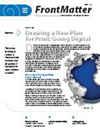Ilemchane跨人类牧民的传统生态知识与适应策略:摩洛哥阿特拉斯山脉的连续性与变化
IF 1.8
4区 环境科学与生态学
Q4 ENVIRONMENTAL SCIENCES
引用次数: 3
摘要
山地牧场是流动牧民的重要资源,为人类带来了广泛的利益。然而,山地牧业社会生态系统(SES)面临着影响山区和牧场的挑战。牧民的传统生态知识(TEK)是他们适应策略的基础,也是未来适应的资源。这项针对摩洛哥高阿特拉斯山脉Ilemchane跨人类牧民的整体案例研究应用了一个简单的框架来探索牧民的生物物理TEK、实践和制度如何相互关联,以及气候和社会变化如何影响SES。通过参与者的观察、访谈和调查,我们发现Ilemchane的气候、植物和生态知识塑造了他们的实践和制度,反过来又加强或改变了TEK。基于最近对山地SES的综合,我们发现了一个偏远的悖论,其中Ilemchane偏远既维持了传统的跨人类文化和TEK,又威胁着它。克服这个悖论可能需要内部组织、集体行动和外部支持。本文章由计算机程序翻译,如有差异,请以英文原文为准。
Ilemchane Transhumant Pastoralists' Traditional Ecological Knowledge and Adaptive Strategies: Continuity and Change in Morocco's High Atlas Mountains
Mountain rangelands are critical resources for mobile pastoralists, and they provide benefits to humankind broadly. Yet mountain pastoral social–ecological systems (SESs) face challenges that affect both mountains and rangelands. Herders' traditional ecological knowledge (TEK) underpins their adaptive strategies and serves as a resource for future adaptation. This holistic case study of Ilemchane transhumant herders in Morocco's High Atlas Mountains applies a simple framework to explore how herders' biophysical TEK, practices, and institutions interrelate and how climate and social changes affect the SES. Using participant observation, interviews, and surveys, we find Ilemchane climate, plant, and ecological knowledge shape their practices and institutions, which in turn reinforce or alter TEK. Building on a recent synthesis of mountain SES, we identify a paradox of remoteness, wherein Ilemchane remoteness both maintains traditional transhumant culture and TEK and threatens it. Overcoming this paradox may require internal organization, collective action, and external support.
求助全文
通过发布文献求助,成功后即可免费获取论文全文。
去求助
来源期刊
CiteScore
3.10
自引率
18.80%
发文量
36
审稿时长
4.5 months
期刊介绍:
MRD features three peer-reviewed sections: MountainDevelopment, which contains “Transformation Knowledge,” MountainResearch, which contains “Systems Knowledge,” and MountainAgenda, which contains “Target Knowledge.” In addition, the MountainPlatform section offers International Mountain Society members an opportunity to convey information about their mountain initiatives and priorities; and the MountainMedia section presents reviews of recent publications on mountains and mountain development.
Key research and development fields:
-Society and culture-
Policy, politics, and institutions-
Economy-
Bio- and geophysical environment-
Ecosystems and cycles-
Environmental risks-
Resource and land use-
Energy, infrastructure, and services-
Methods and theories-
Regions

 求助内容:
求助内容: 应助结果提醒方式:
应助结果提醒方式:


